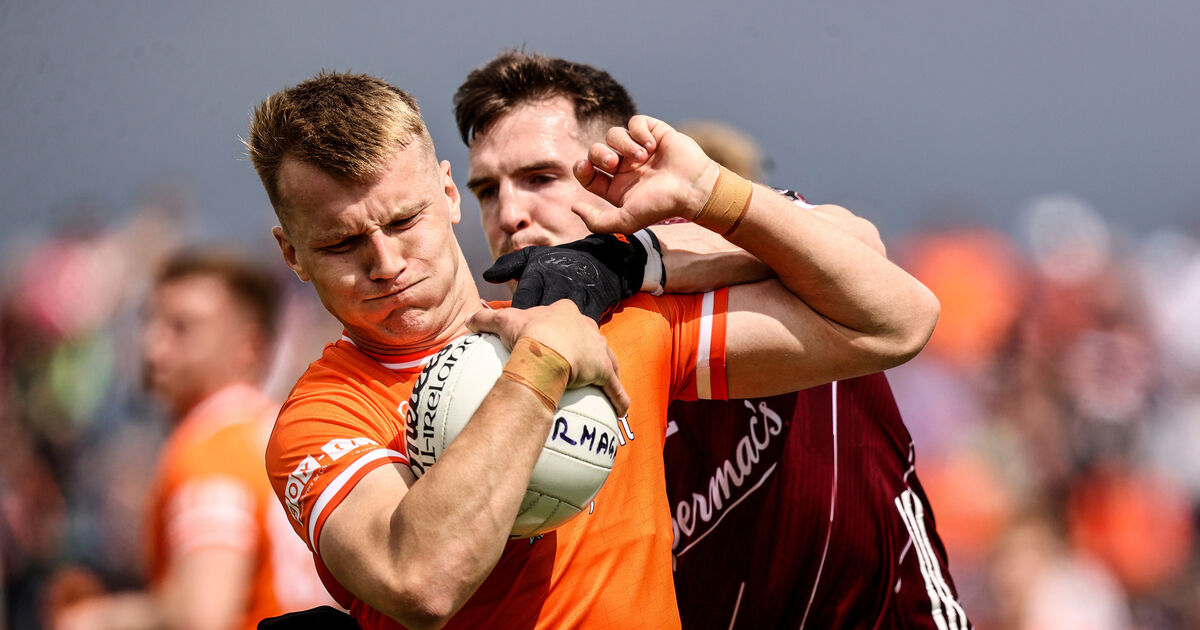At the outset of April, David Jennings wrote a preview of the football championship in the Racing Post, which was mostly based around the betting odds.
If the betting was to be believed at that time, the All-Ireland looked to be a three-horse race, with only Dublin, Kerry and Derry mattering in the market.
Derry had just won the Division 1 league title, having beaten Dublin after extra-time in an epic.
It was fair to make a compelling case for the odds being too big on Derry at 9-2, especially when Dublin were 13-8, but Jennings argued that they still seemed short enough.
Of the big three, Kerry had the most appeal at 11-4, but the real value was to be found on Galway, who were priced at 14-1.
“They are the forgotten piece of this particular jigsaw,” wrote Jennings.
Where were Armagh in the reckoning at that time? Nowhere near any of the big guns, and only seventh in the betting list, priced at 21-1. They had only lost a Division 2 league final to Donegal a few days earlier by one point but Donegal were still priced at 11-1.
Armagh’s odds were mostly based around trust – which is always a dangerous word in the betting world.
Nobody doubted their class and talent, their experience, worldliness, power and physicality. But could Armagh be trusted to get the job done when it mattered most?
Those difficult questions were asked again after the Ulster final, which Armagh lost on penalties.
A shootout is always an unforgiving way to lose but the hardest questions were asked of Armagh long before it got to that stage – particularly in the fourth quarter when Armagh failed to score for the last 20 minutes of normal time.
Once the match went to extra-time, and penalties almost seemed inevitable, the commentary hardened on Armagh’s capacity to get over the line. Again.
Irrespective of how close Armagh had been in the last two years, having lost their three biggest games on penalties, the biggest threat with losing is doubt. It leaves unanswered questions.
Had Armagh improved the process to make themselves better? Had it brought them closer to winning when it matters most? Penalties are a lottery but a fourth defeat in that manner made it more difficult again for Armagh to shed that brutal stigma of being unable to get the job done.
The more tight games they played, the more they began to learn the lessons of why they kept coming up short. And the more they put those lessons to good use.
“We did take the wrongs of the past few years and use them,” said Stefan Campbell after the All-Ireland semi-final win against Kerry.
“We learned things from all those games, even going back to Galway in 2022. We went back that far during the week. I think four extra-times really stood to us – two Ulster finals, two quarter-finals.”
Galway have been shaped by a similar pattern of guts and grind.
After the disappointment of 2023, when losing the league final and a preliminary All-Ireland quarter-final to Mayo, followed by an underwhelming spring when winning just two league games, the heat was dialled up even more after Galway needed an additional time goal to scrape past Sligo in the Connacht semi-final.
Yet that match set a familiar trend; against Mayo, Westmeath and Dublin, Galway came from behind late on to snatch the win.
They were able to beat Dublin with Seán Kelly gone off since the 22nd minute, Shane Walsh being forced off in the last ten minutes, and Damien Comer and Rob Finnerty failing to score. Kelly didn’t play against Donegal while Walsh only managed one point from play in that game, and Comer failed to score again.
Who could have envisaged that Galway could beat Dublin and Donegal in those circumstances after the Sligo game? Nobody.
Keeping a clean sheet against Dublin and Donegal was impressive but that defensive parsimony has been the hallmark of this odyssey, with Galway having only conceded an average of 0-14 per game.
Padraic Joyce also has the strongest panel available during his five-year tenure. Much of the regeneration was developed out of necessity when Galway had up to 15 players either injured or rehabbing their way back to full fitness during the league. New players have stood up and driven this side on.
Nobody ever doubted the talent and quality within the squad, but the biggest challenge this Galway team have always faced is being able to consistently deliver on that promise. Now they are.
In another form, Armagh consistently faced questions just as hard, despite, technically only having lost one game on the field since April 2022 – a two-point loss to Tyrone in Omagh in last year’s round robin. The other four championship games that Armagh have lost in the last 27 months were all on penalties.
Those losses hardened the commentary on this group and their ability to get over the line, but now Armagh have changed that narrative.
So have Galway, who have made their name in this championship from closing out games when the heat is at boiling point.
Now that they are meeting again on the biggest stage of all, who will blink first?
It should be something similar on Sunday. Or else a draw, even after extra-time, has never looked a safer bet for an All-Ireland final.

